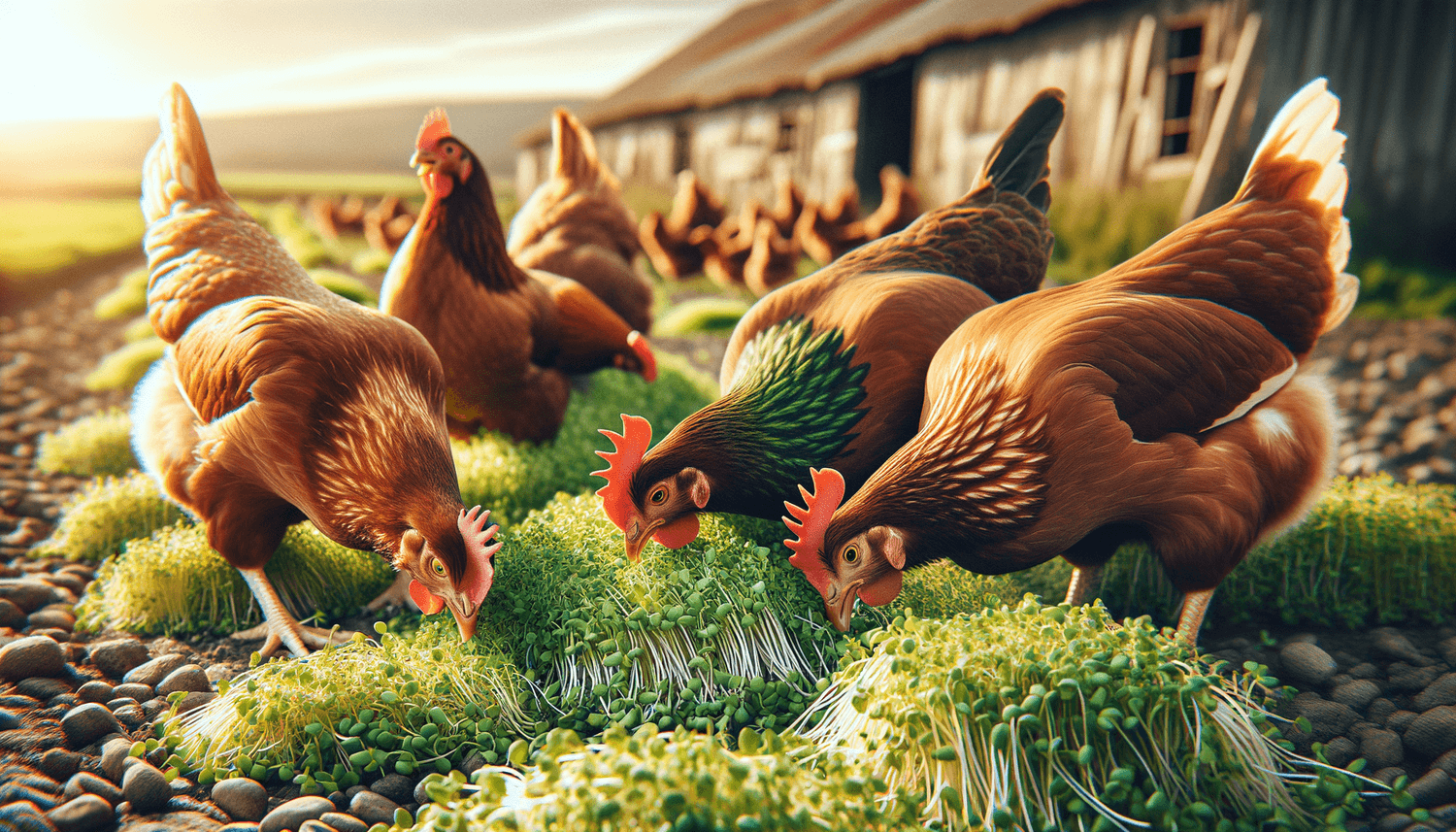Can Chickens Eat Alfalfa Sprouts?
Yes, chickens can eat Alfalfa sprouts. These tiny plants are rich in nutrients and offer a range of health benefits, including enhanced egg quality, a boosted immune system, and improved chicken growth. However, as with any supplemental feed, alfalfa sprouts should be fed in moderation along with a balanced chicken diet.
Overview of Alfalfa Sprouts
Alfalfa sprouts are young shoots of the alfalfa plant, packed with vitamins and minerals. They are particularly high in Vitamin K, C, and B vitamins, and also carry essential minerals like iron, magnesium, phosphorous and calcium. Furthermore, they are a fantastic source of protein, fiber and Omega-3 fatty acids. This combination makes alfalfa sprouts a healthy addition to a chicken’s diet.
Benefits and Risks of Alfalfa Sprouts for Chickens
Alfalfa sprouts carry numerous benefits for poultry. The high protein content supports growth and muscle development, while the Vitamin K content aids in blood clotting. The fiber content also aids in healthy digestion. However, there is a risk if alfalfa sprouts are consumed in excess. Overconsumption could cause digestive issues, and as high-protein feast, it could potentially lead to kidney damage if not balanced with other components of their diet.
Feeding Guidelines
Alfalfa sprouts can be given to chickens as a treat, in small amounts. They should be fresh and clean to avoid bacterial contamination. Alfalfa sprouts should form only a small part of the chicken’s overall diet – with the majority being made up of a balanced layer feed. It’s always good to monitor your chickens when introducing any new food into their diet, including alfalfa sprouts.
Alternatives
If you’re looking for alternatives to alfalfa sprouts, consider other leafy greens like lettuce or spinach. These veggies are also packed with nutrients and generally well-liked by chickens.
Expert Opinions
According to poultry nutritionists and veterinarians, alfalfa sprouts can be a nutritious addition to a chicken’s diet. However, they caution against using sprouts as a sole source of nutrition. A balance diet catering to all of their nutritional needs is critical.
Frequently Asked Questions
Common queries regarding feeding alfalfa sprouts to chickens revolve around the quantity to be fed, when to introduce them into the chicken’s diet, and potential health risks. The most important takeaway is to start with small amounts, observe your chickens for any signs of discomfort, and ensure a balanced diet.

















